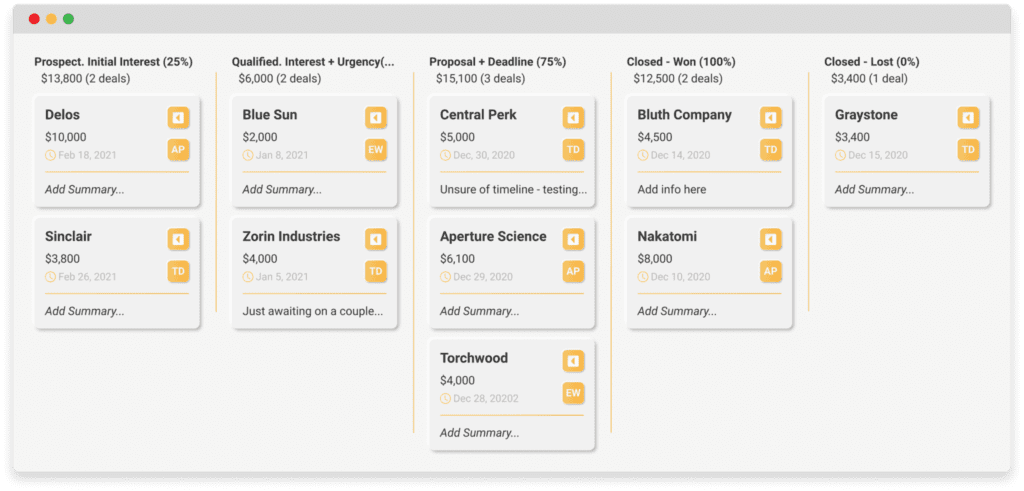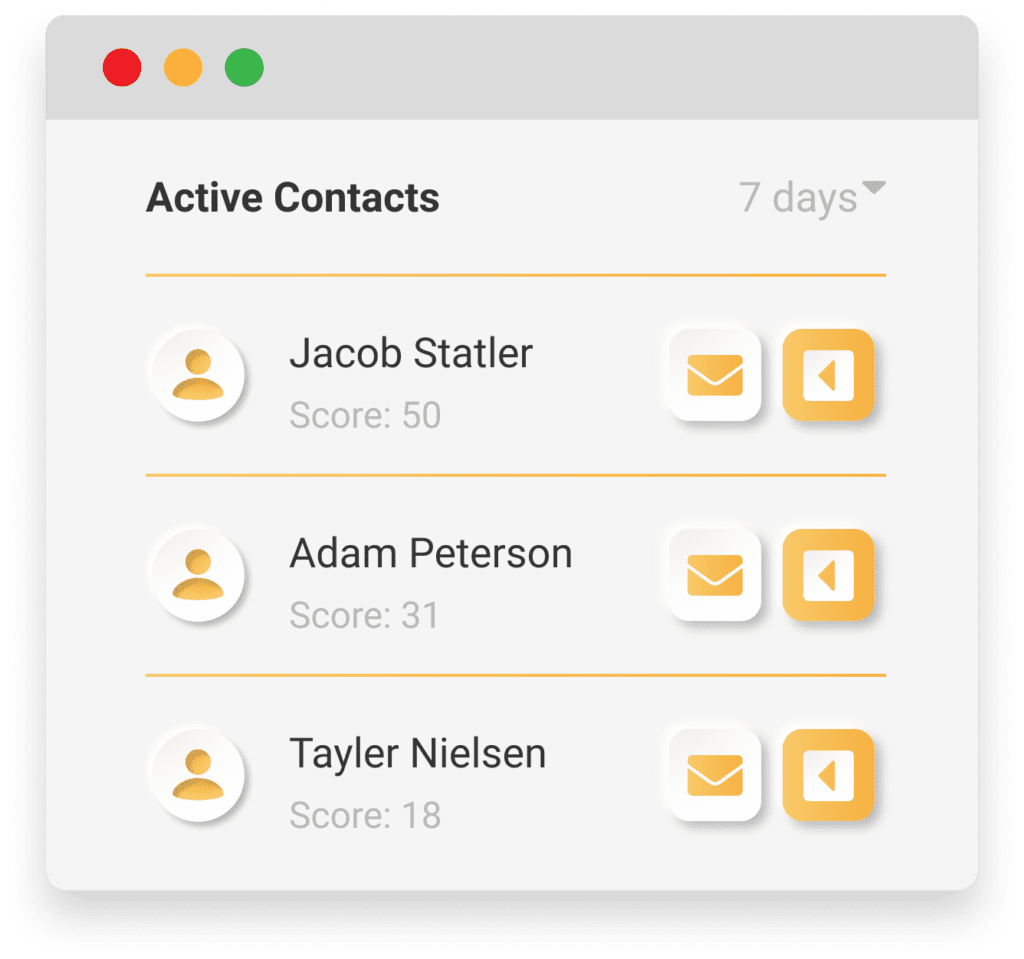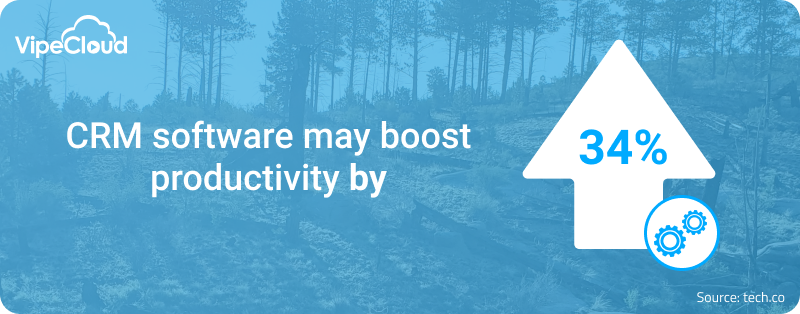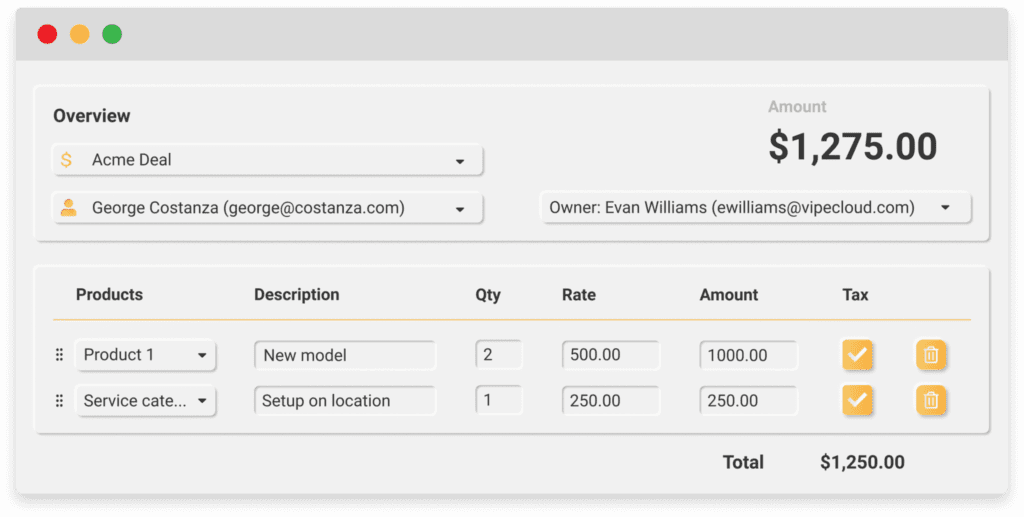Last updated on August 3rd, 2023

Today you’ll learn about the benefits and potential drawbacks of implementing CRM for your business.
Customer relationship management is such an important aspect of your business because of how it improves relationships with customers and other connections in your industry.
Having a CRM system will ensure all the aspects (marketing, sales, customer service, and internal operations) of your business are implemented correctly.
And guess what?
Once you have CRM software and use it to its full capabilities, the advantages of customer relationship management become very apparent.
So let’s take a look at the advantages you could experience with CRM and even some potential disadvantages to look out for.
We’ll go over:
- How Customers Benefit from CRM
- What Are the Advantages and Disadvantages of A CRM?
- The Advantages Of CRM
- The Disadvantages Of CRM
- What’s The Best CRM For You?

VipeCloud is the only Automation tool your small business needs to
be the hero to your customers.
With Email, Texting, Social, Suites, Chat, Stories, Video Email & Sign Up Forms fully built-in, we provide you with the perfect platform to grow your business.
15 Day Free Trial – Get started risk free. No CC needed.
How Do Customers Benefit from CRM?
Customers benefit from CRM thanks to the personalized customer service they can receive.
CRM contributes to immediate responses to customer needs, how your staff understands the customer’s history, and the ability for your team to offer multiple solutions.
When customers feel cared about and looked after, they’re more likely to be returning buyers.
But the benefits don’t just end there. CRM helps you recommend products that’ll further add value to your customers, whether you’re upselling or cross-selling.
For example, on the marketing front, customers can benefit from whitepapers that educate them on your company’s service. They can receive this resource from your company based on their “qualified” position in the “opportunities” section of your company’s CRM.

So what’s the big picture?
Just think of the customer experience as all parts of your business: from marketing to customer service itself.
Why?
Customers and potential customers are always judging your business as a whole based on what they’re experiencing.
As a matter of fact, 76% of customers expect interactions to be the same no matter what department they’re interacting with.
With an outstanding customer experience, your business can stand out and organically drive customers thanks to word-of-mouth referrals.
What Are the Advantages and Disadvantages of A CRM?
Knowing the advantages and disadvantages of CRM will help you understand how to implement the technology into your business better.
This next section will highlight the pros and cons of CRM along with helpful data insights that will piece the information together.
5 Core Advantages Of A CRM
1. Enhances Customer Service
Customer service can make or break a business.
Excellent customer service brings customer loyalty, which is a strong pillar for business growth. PWC reports that 86% of buyers tend to pay more simply due to better customer experience.
If a client experiences poor customer service while working with you, their chances of coming back are close to zero.
And to make things worse, they may spread the news of your poor customer service through online reviews, which can hurt your business long term.
CRM helps you add a personal touch to each customer’s experience, which will keep them coming back.
With unique customer profiles in your CRM, you can treat each customer individually rather than giving them the same basic service.
For example, when you win a new client, you can use your CRM to automatically send them onboarding documents with a video email explaining how to complete them.
2. Finding New Customers Becomes Easier
While having loyal and returning customers is great, you also need to find new customers for your business to scale.
CRM systems can identify potential customers interested in your products by allowing you to score them based on attributes and behaviors.
This is known as lead scoring.
This feature allows you to prioritize your important deals that have the highest chance of landing.

CRM also gives you access to tools that help you gain clients:
- Tools to market on social media
- Landing pages for collecting information
- Email marketing features that allow you to sell to your email list.
This consolidation of features adds efficiency and brings the “customer acquisition ease” that tons of small and medium-sized businesses are craving.
With systems that maintain your current customers and systems that bring in new ones, you have the perfect recipe for continued revenue expansion.
3. Enhances Your Staff Productivity
Another massive advantage of customer relationship management is the productivity it brings to your team.
For instance, here are CRM features from VipeCloud that better overall productivity:
- Email sync – Unifies emailing from your CRM and your Gmail/Outlook/etc.
- A CRM database – Organizes your contacts and can automatically update information rather than you always manually doing so.
- Contact segmentation – Divide your contact list into groups, making it 10X easier to send tailored marketing messages to particular people.
- Software integrations – Allows for your CRM information to populate into your most crucial software like QuickBooks. You can also pull information from leads to VipeCloud using Zapier.
- VipeCloud Estimates – A CPQ system (configure, price, quote) is a faster way for your sales team to send quotes to prospects ready to work with you.
- AutoResponders – This is automation that helps you save time by delivering automated messages to customers.
- Task Reminders – Helps staff stay organized day-to-day by notifying them of deliverables that need to be done for the day, week, or month.
With a more productive team, you can see a boost in workflow development and the speed of task completion — all thanks to CRM software, which can boost productivity by 34%.

4. Makes Cross And Up-Selling Of Products Easier
Cross-selling is when you offer complementary products to customers based on something they bought previously or something they currently have.
Upselling is when you offer a better or premium product from the same category. (It might be the same product they want but with better qualities or more features.)
Upselling and cross-selling are easier with a CRM system because your account managers can see what products customers are using and what additional features they could benefit from.
Not to mention: You’re increasing the average order value of your customers while offering them even more value.
Here’s some intel on how to cross-sell or upsell effectively.
1. To know what your customers want, simply listen to the particular features and requests they have when contacting your business.
2. Go through your product line and tie products together that solve the problem. If it’s a new prospect, use your CPQ system to offer additional solutions at the right price.

3. Talk about the value of what you’re upselling or cross-selling, show testimonials, and tie the features to the customer’s pain point. Talk about the end result of the product you’re upselling or cross-selling.
4. Ask for feedback on the feature to see how it’s working for them. Again, this is a great way to service customers and create loyalty.
5. More Sales Alignment
CRM makes selling easier thanks to the ease of managing your deals.
You can prioritize your most important deals, score your prospects, and distribute leads to the right salespeople.
Now, let’s look at it on the flipside:
Without a way of organizing sales, you could run into lost opportunities, slower sales cycles, and eventually less revenue.
CRM can also help your sales team accurately communicate deals to one another and schedule important sales meetings that will boost performance in the future.
As you can see, it’s a feedback loop that aligns your sales system more and more.
The Disadvantages Of A CRM To Keep In Mind
Now, let’s go over some disadvantages of CRM.
Each section will also mention some possible solutions you can implement that’ll turn your CRM “lemons” into lemonade.
May Come At A High Price Point
To implement and use a CRM system, you may need to upfront a high cost.
But the good news?
Most CRMs offer different packages that are tailored to your business’s size and needs. These packages come at various price points, so you can choose the one that meets your budget and feature requirements.
Now, although it is an investment nonetheless, the ROI from CRM can be great. In fact, on average, the ROI for CRM is $8.71 for every $1.00 invested.
When investing in a CRM, here are some things to keep in mind so that you get something that works with your budget:
- What are my business goals, along with the KPIs I need to measure?
- What are some must-have features in my ideal CRM?
- How many team members will be using it?
- What is your average monthly revenue? (This helps you crunch the numbers and include the CRM as part of your business costs.)
Training Can Take Time
Let’s face it, when you implement a new CRM technology, you’ll have to train the staff on how to use it.
The difference between a trained staff member vs. an untrained staff member is night and day.
Training new staff and current staff can be costly and can be a big effort from a financial standpoint.
You might have to spend time conducting training sessions, providing CRM resources, and creating CRM plays specific to your business.
And once the employees have all the training they need, you may still have to assess performance to ensure everyone understands (and sticks to) the training.
This investment in training is what’s needed to get the most out of your CRM’s capabilities.
Think of it like this:
Training will be more needed at the beginning of your implementation — but will be lighter as your staff gets familiar with it.
And as time goes on, you’ll have more and more training materials that can help your future employees and staff.
Pro Tip: Ask the company that created your CRM for helpful guides and CRM training materials for your company to use.
Overall, the best way to cut down on training time is to use a CRM with a shortened learning curve like VipeCloud.
VipeCloud’s Marketing & Sales Suite has everything you need in front of you, along with guides in the CRM that help you use it to its fullest potential.
Potential Security Issues
If you don’t get a CRM system from a reputable and trusted company, you may find yourself with some not-so-fun security problems.
This can negatively affect your business and the relationship you have with clients and customers.
Customers want to make sure their data is secure. (I’m sure you’re on the same boat with any company you’re a customer of.)
Here are a few ways to protect your CRM information:
- Install and keep computer security software up to date – Things like antivirus and antimalware can protect you from cyberattacks that could compromise your CRM data.
- Manage user permissions – Assigning only the most necessary CRM capabilities to team members. For newer team members, give lesser permissions at the beginning.
- Choose a reputable CRM provider – CRM companies with great reputations typically have time-tested CRMs that are built for business success and information protection. Be sure to ask about how your CRM company protects data.
- Use 2-factor authentication if possible – This verifies who’s logging in by confirming your identity via a separate device.
- Create a strong password – Have a long password that includes numbers, symbols, different letter cases, and even random words. Store your password in a safe place, such as a password storage app or chrome extension.
- Turn on notifications – Knowing the different activities going on in your CRM helps you notice any suspicious activities. Be sure you’re receiving notifications consistently via email or other means.
- Train employees and staff on information security – Inform your team on safety measures for CRM security. This can be educating them on what suspicious email senders do or what links to stay away from. With your team on the same page as you, there are fewer things that are likely to go south.
“Over-Automation” Is Possible
Today’s CRM is built for efficiency.
This efficiency shows up in how you help your customers and how your team performs as a whole. But with things like automation, although efficient, it can be overdone.
Over-automation is when automation creates problems because “human factors” aren’t considered.
An example of over-automation in customer service is an automated FAQ chatbot that answers every potential question without a human ever getting in touch.
Sometimes, there are nuanced questions that only a human can really understand and answer.
This disadvantage (of over-automation) comes down to how you use CRM rather than the tool itself.
Think of what areas of your business where human communication or automation will get you the best results. And in some cases, where you should use a combination of both.
“…Automation applied to an efficient operation will magnify the efficiency. Automation applied to an inefficient operation will magnify the inefficiency.” – Bill Gates.
What’s The Best CRM In Today’s Age?

As you can see, CRM has its pros and minor cons.
To reap the list of benefits from CRM, it’s crucial to know your needs, budget, team size, and ideal features.
After that, understanding how to safeguard customer and business information with well-trained staff can take things to the next level.
You’ll serve your customers better and retain them more by inspiring loyalty while bringing more efficiency to your organization.
It all starts with choosing a robust CRM that is tailored and customizable for businesses just like yours.
That’s why so many choose VipeCloud for their CRM implementation, thanks to all the checkboxes it ticks off.
Want to see it for yourself? Try it FREE for 15 days.
If you have questions, request a demo, and we’ll not only answer them but also show you how it works.

Leave a Reply